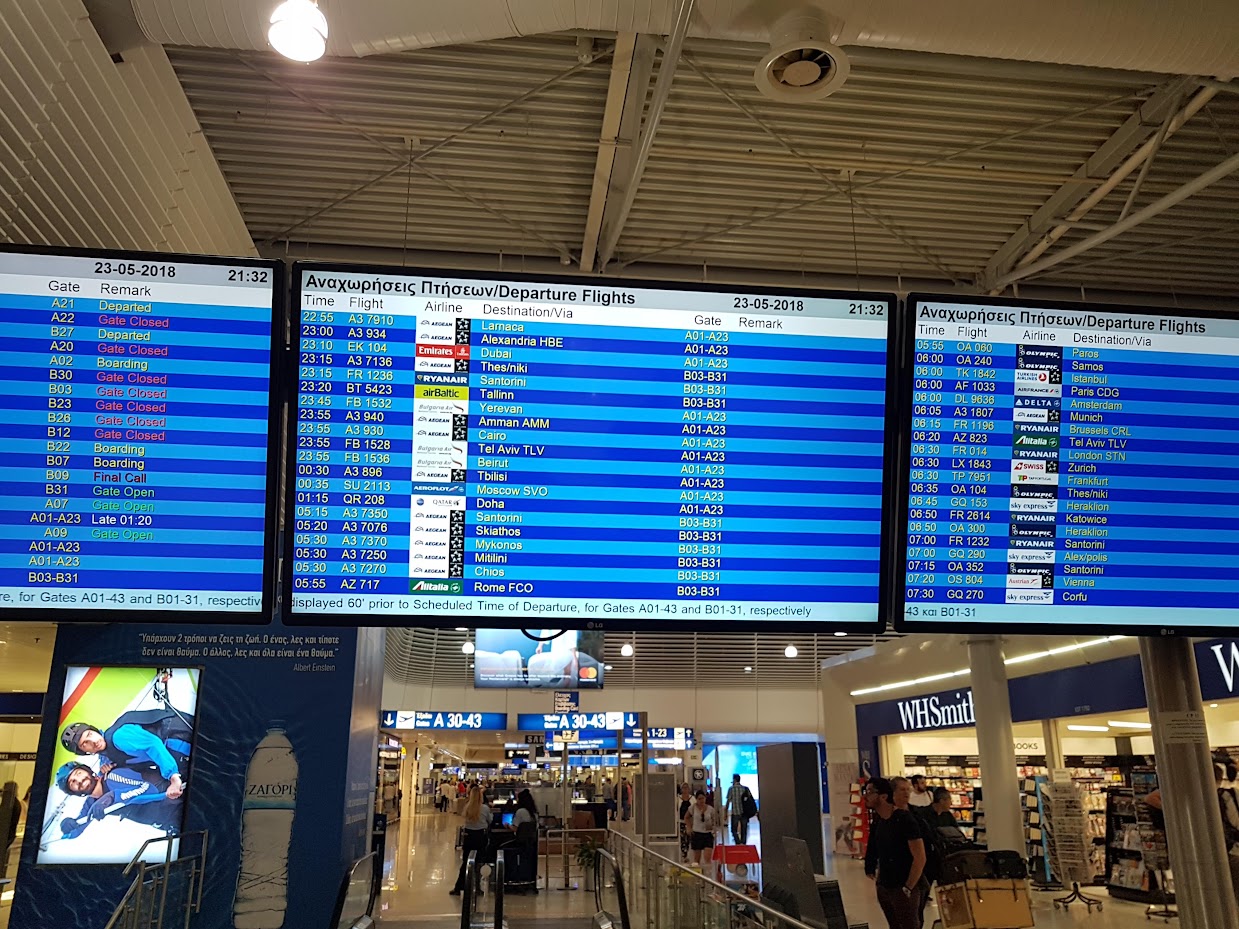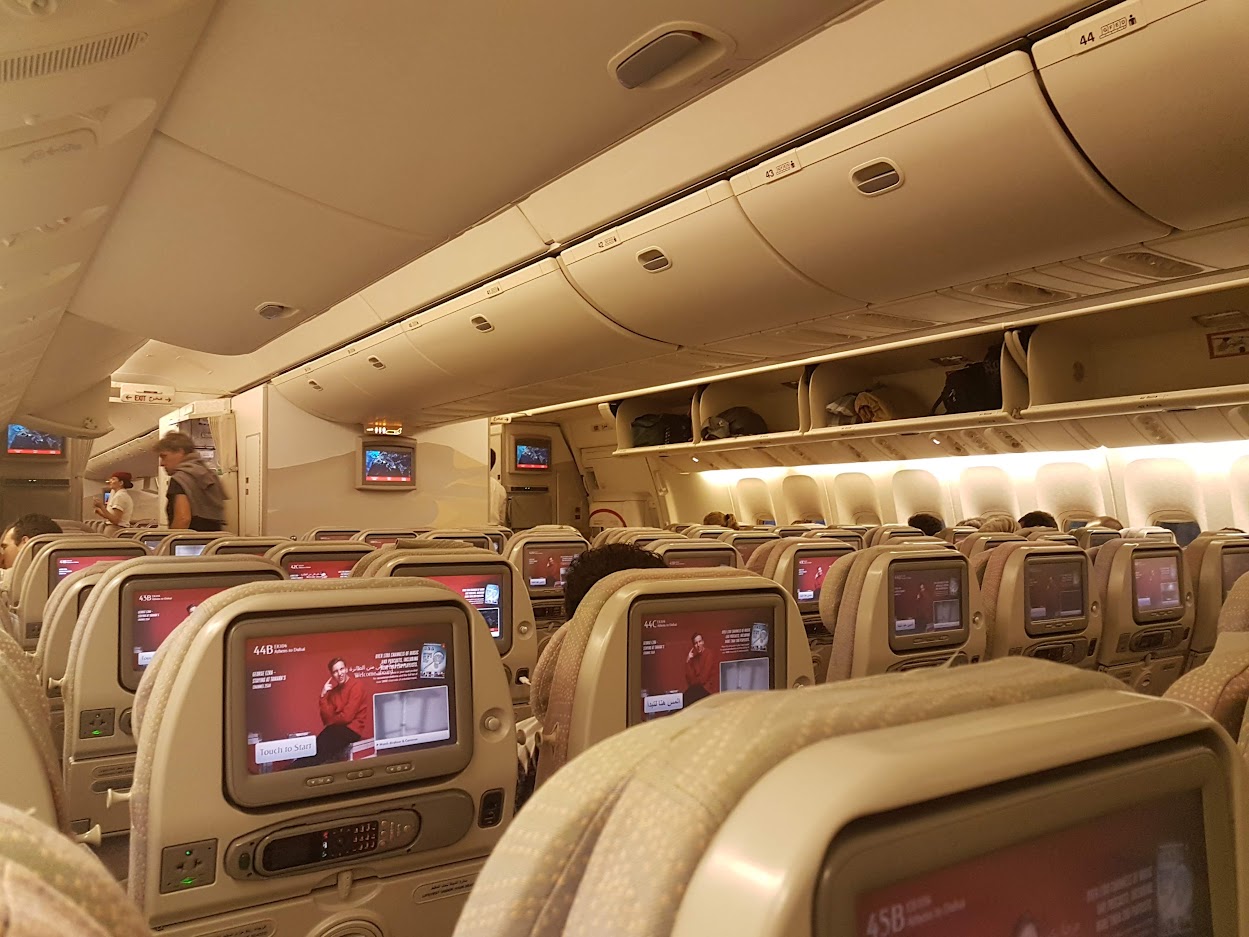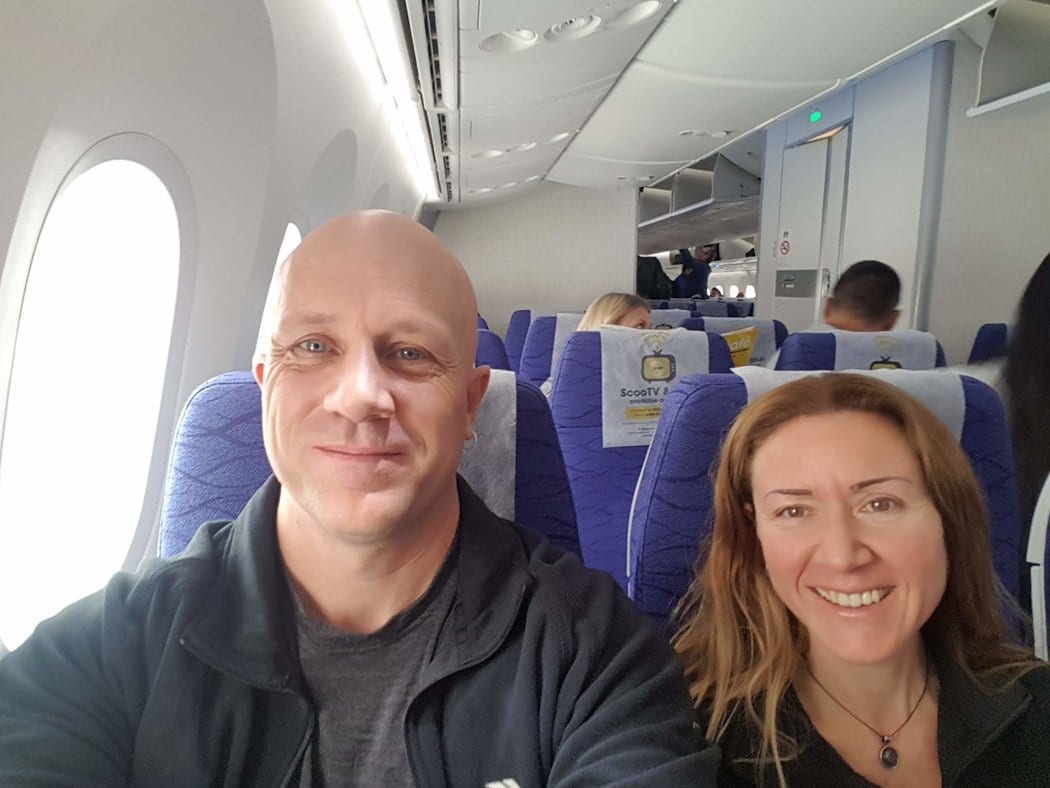Try to stay well hydrated, avoid too much caffeine, and eat smaller meals if you want to prevent jet lag when flying through multiple time zones.

What is jet lag?
Jet lag is a type of fatigue or sleep disruption caused by traveling through different time zones. As people move from one time zone to another, they may experience a range of jet lag symptoms such as exhaustion, difficulty sleeping and concentrating, irritability, gastrointestinal issues and more.
This is because the body's circadian rhythm can be affected when people cross multiple time zones when travelling. The circadian rhythm is an internal clock that regulates the body’s 24-hour cycle and ensures it is in sync with the environment, including day and night cycles. Jet lag occurs when this 24-hour cycle is disturbed, causing fatigue and other symptoms.

Jet lag typically lasts for 1-3 days, depending on the number of time zones traveled and the individual's own body clock. It can take up to a week or more in extreme cases.
Some people say that jet lag does not happen on north-south flights that do not cross multiple time zones. While this may have some truth to it, in reality, spending more than a few hours on a plane is still likely to affect your tiredness even if it does not affect your body's natural clock in terms of a sleep schedule.
My experiences on long flights
I've flown long distance many times over the years. Some of these flights include flying from Athens to Singapore, Frankfurt Germany to Fairbanks in Alaska, Istanbul to Kathmandu, and UK to Australia via Singapore.

I have to admit, I've never bounced off a long flight feeling absolutely perfect! Even when I've done all the right things (kept hydrated, had light meals, got rest before the flight), I've still felt that jet lag travel fatigue when I've landed.
After the first night's sleep at my destination, I've normally woken the next day feeling refreshed and ready to explore. Probably still not quite 100% though.
So, my advice is even if you follow all the steps I'm going to suggest on minimizing jet lag, don't plan too much for your first day at a new destination just in case.
Tips on how to avoid jet lag
Here's some tips on how to minimize jet lag when traveling by plane:
Get the best timed flight possible
There's two theories on what the best timed flight might be. One, is that you time your flight for your regular night time, and try to fall asleep on the plane. This way when you land, you will wake up feeling more aligned with your usual body rhythm.
Once in your destination, you will then adjust to the new time zone slightly easier. The drawback is that the quality of sleep you might get on a plane is not normally all that great.
The second theory, is that you stay awake during the flight, and then when you land, try your best to keep yourself up until your usual bedtime in the destination's time zone. This will help get you aligned with the local time quicker than if you had gone straight to sleep when landing. The drawback here, is that you normally end up having what feels like a very long day!
Either one of these options can work, it just depends on what works best for you personally. I tend to fall asleep quite easily on planes, so for long haul flights, I'll try and fly in the evening and sleep on the plane.
Related: How to find cheap flights
Get rest before the flight
There can be a lot of running around at the last minute on the days before a long flight. Making sure you have all your items, packing your bags, squeezing in one last activity….
Try to avoid this when at all possible! I like to have my bags packed a couple of days before the flight, and free up my calendar so I'm not trying to fit too many things in on the days leading up to my flight.
Try to get some good rest the day or night before your long flight, so that you're as well rested and energized when boarding the plane. A little bit of fatigue before a long flight can really compound the jet lag feeling after landing.
Related: Pros and cons of traveling by plane
Stay chillaxed
Heading out on a vacation you've planned for a long time can lead you adrenaline to spike and your energy levels to go through the roof before you've even got to the airport!
Relax into your day, and leave home in plenty of time to reach your departure terminal and check in. You might also want to pay a little extra for lounge access for a bit of pre-boarding chill out time.
During the flight, stay as calm as possible. I'm not saying sit there like a vegetable, but keep your energy levels low and try to get some rest if possible. Surges of adrenaline are always accompanied by an energy crash, so you don't want to be dealing with that while trying to adjust to a new time zone.

Keep hydrated
This shouldn't really come as news, but it's amazing how easy it is to forget something like this when you're caught up in the excitement of traveling.
You should stay hydrated both in the days before you travel, and during the flight itself. Airplanes are very dry environments and can easily suck the moisture out of you.
To counter this, make sure you drink plenty of water on the plane and maybe even throw in some electrolyte drinks if it's a particularly long flight. Staying hydrated will help prevent jet lag by keeping your energy levels topped up, and it also help to prevent headaches that can come from being dehydrated.
Avoid Alcohol
Staying hydrated doesn't mean having a few beers on the plane! Alcohol causes dehydration, exacerbates fatigue and can also make it much harder to sleep. Try to avoid drinking alcohol on the plane, as well as the day before and after your flight if possible.
If you can manage it, avoiding too much caffeine is another way of preventing jet lag. Caffeine is a stimulant which will keep you awake for longer than usual and can make it harder to adjust to the new time zone.
Drink water instead. You'll thank me for it later!
Eat – but don't overeat!
Sometimes you get into a bit of a rhythm during air travel and end up eating because of boredom, or simply because the food is right there in front of your face!
I'm not saying don't eat – but try to be thoughtful about what you do eat. If possible, try to avoid super-sugary, salty and starchy snacks that may cause energy crashes, and stick to protein and healthy fats.

Also, try not to overeat as this can lead to feelings of heaviness and fatigue. Instead, opt for smaller meals at regular intervals. This will help to keep your energy levels up without overloading your body after a long flight.
Here's some ideas of food you can take with you if you don't like airline food: Snacks to take on a long haul flight
Sleep
Falling asleep is not a problem for some people (especially me – I'm convinced planes act as a natural sleeping pill!), but if you're having trouble try to take some simple steps to encourage your body to adjust.
Firstly, make sure the lights are low in the cabin and that you've got yourself comfortable with a travel pillow and an eye mask. If it's daytime at your destination, wear sunglasses on the plane to reduce light exposure and bring ear plugs to block out annoying plane noises.
Also, try not to use gadgets such as laptops, tablets and phones for too long during the trip. The blue light from these devices can keep your mind wired and make it difficult to fall asleep.
Some people recommend blue light blocking glasses and melatonin supplements to help with sleep, but if you're going to try either of these be sure to do your research first.
Related: Long haul flight essentials
What to do if you are jet lagged
Arrived at a new destination and despite doing your best, you ended up jet lagged in any case? Well, keep drinking plenty of water, avoid the caffeine temptation, and eat healthy food.
To help you adjust to the new time zone, try setting your clock and phone accordingly, exposing yourself to natural sunlight as much as possible and avoiding naps or caffeine late in the day. Exercise can also help keep your body alert and reset your sleep cycle.
Severe jet lag rarely lasts more than a few days, so don't get too down on yourself if you haven't beaten it after 24 hours. Take it easy and try to stay positive – you're on vacation!
Related: Singapore Captions for Instagram
How to minimize jetlag FAQ
People who have a long haul flight planned often ask questions such as these:
How long until jet lag goes away?
Typically, jet lag dissipates within a day or two of your arrival at the destination. However, the amount of time it takes to fully recover from a long-distance flight and adjust to the new time zone can vary depending on the individual.
How can I avoid jet lag from Europe to US?
Planning ahead and preparing for jet lag is key when making a long-distance flight from Europe to the US. To minimize its effects, travelers should start adjusting their sleep schedule a few days before departure to match the time zone of their destination and avoid consuming caffeine late in the day
How do pilots deal with jet lag?
Pilots and flight attendants often have to travel long distances and across multiple time zones, making jet lag a common problem. To manage jet lag, pilots must take steps to adjust their circadian rhythms to the new time zone before and during the flight. Such steps include avoiding bright light at night, eating light meals, drinking lots of water and taking breaks between flights.
Is jetlag a real thing?
Yes, jet lag is a real thing and it can have serious effects on travelers. It is a disruption of the body's natural circadian rhythms due to long-distance travel across multiple time zones. Symptoms of jet lag include fatigue, difficulty concentrating, headaches, and insomnia.
Is taking melatonin supplements a good idea for long flights?
Melatonin supplements can help alleviate jet lag symptoms and make long flights more comfortable. Studies have shown that taking melatonin supplements before and during a flight can reduce the effects of jet lag. However, it is important to consult with a qualified healthcare professional to determine what dosage is appropriate for you as well as any potential drug interactions.
Also read:
- Can you take a powerbank on a plane?
- How to get to Santorini by plane and ferry
- Airport captions for Instagram
- Taking spices on an airplane
- Where to travel in Greece
 – Dave Briggs
– Dave BriggsDave is a travel writer from the UK. His home is now Greece, which he says has something special in store for everyone! Its picturesque islands, such as Santorini, Mykonos, Rhodes and Milos make for excellent beach holidays and sightseeing opportunities. Major historical sites like Knossos in Crete, Delphi or Mycenae are certain to leave visitors mesmerized with their majesty. Follow Dave on social media for Greece vacation ideas: